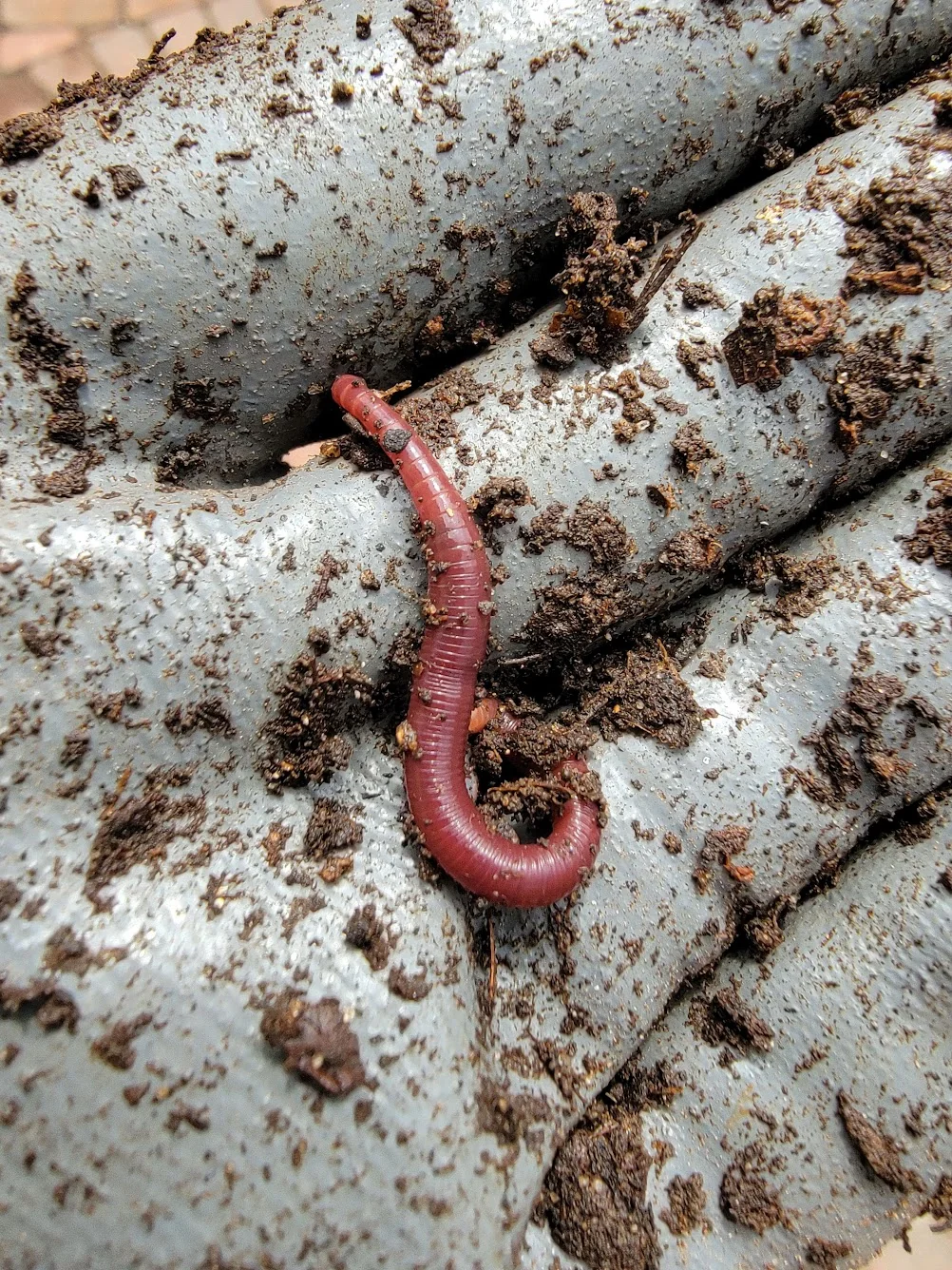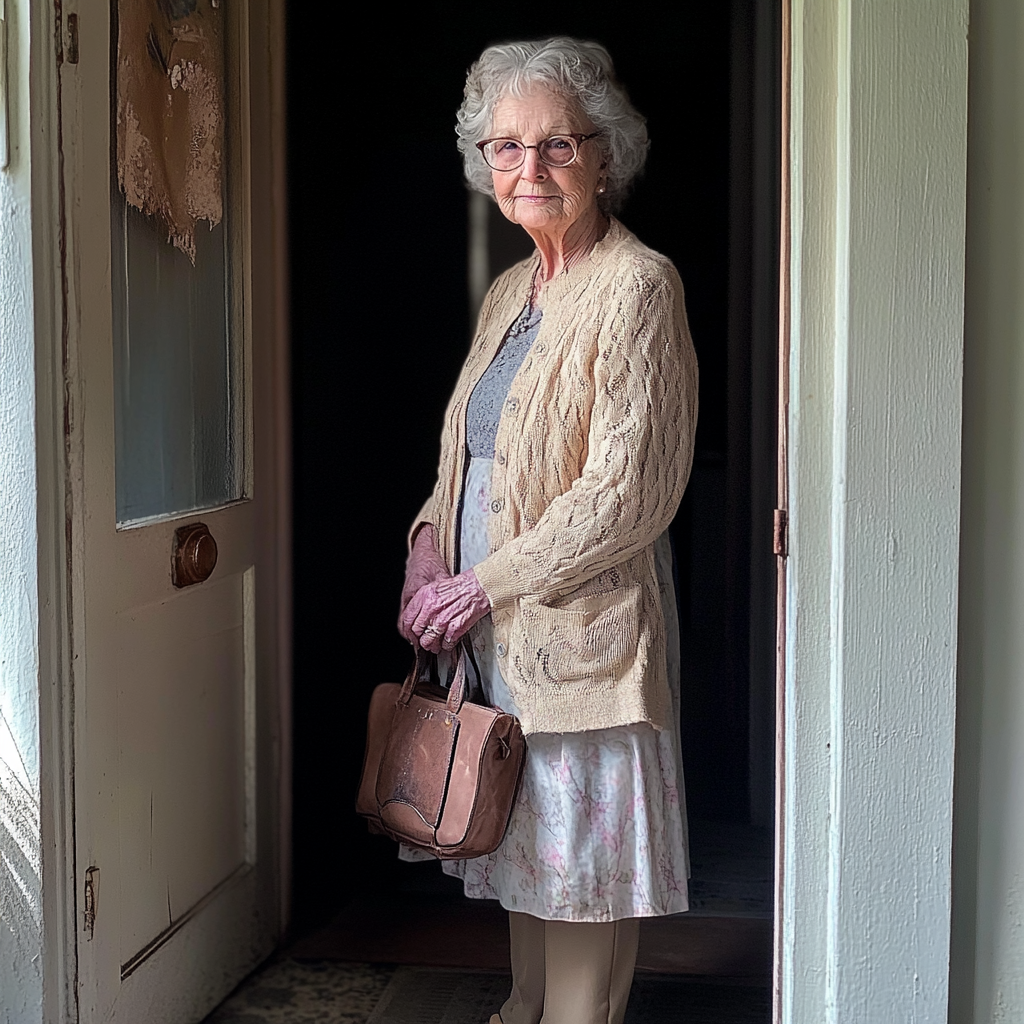
An invasive type of worm from Asia is posing a new challenge to Midwest gardeners. In gardens and yards, these jumping worms are wreaking havoc, so you need to take precautions to save your prized plants. Because they are tenacious and lack natural predators in the United States, these worms can proliferate quickly and cause destruction wherever they go.

The Asian jumping worms eat the soil, leaving it depleted and in bad condition. Their insatiable appetite modifies the structure of the soil, causing it to lose moisture retention and become depleted of nutrients. This makes the soil more susceptible to erosion, which further complicates the situation for plants trying to grow.
These worms may be really scary in addition to harming the soil. Despite the term suggesting they may “jump,” they move more like a twisted snap, which contributes to their unsettling appearance. Several states have acted to stop this dangerous invasion because they understand how important it is to handle this matter. Wisconsin, Missouri, Illinois, Iowa, Minnesota, Nebraska, Ohio, Texas, Louisiana, Indiana, Kansas, Kentucky, Tennessee, and Oklahoma are among the states that are impacted.
If you see these worms, you should get rid of them immediately to protect your garden. By stealing nutrients from the soil, these invasive worms deprive nearby plants and animals of their food supply. The local ecosystem deteriorates in the absence of a suitable habitat, which causes a decrease in the number of plants and animals.
There are steps you may take to fight these worms if you live in one of the impacted states. The University of Wisconsin-Madison Arboretum’s Brad Herrick, an ecologist, advises sprinkling a mixture on the ground to encourage the worms to come up for air and leave their underground homes. This technique can shield your garden from them and help lower their population.
A distinguishing feature of the Asian jumping worm’s body is a white ring that is situated near to its head. It’s best to get rid of these worms right away if you find them. Any mature worms you find should be disposed of after being placed in a plastic bag and left in the sun for at least 10 minutes. Furthermore, it’s crucial to avoid buying these worms for composting, gardening, or bait. Since their eggs cannot withstand temperatures higher than 104 degrees Fahrenheit, only purchase mulch or compost that has been thoroughly heated to reduce the chance of their spreading.
We can preserve the health and vibrancy of our ecosystems as well as our gardens by acting proactively to combat this invasive plant. By working together, we can end the jumping worm’s destructive reign and bring harmony back to our Midwest gardens. To find out more about these invasive worms and their effects, watch the video below:
Priest Conducting Funeral Service for Wealthy Woman Leaned over Her Coffin – He Was Stunned to the Core by What He Saw

When Father Michael is conducting a funeral service for a woman, he notices an oddly shaped birthmark on her neck, exactly like his own. What comes next is a journey of self-discovery through the grieving process. Will Father Michael get the answers he so desperately wants to find?
The cathedral was silent, veiled in the heavy air of loss. Shadows from towering candles flickered along the marble floor as mourners dressed in black filled the pews, their heads bowed in reverence.

A funeral in a cathedral | Source: Midjourney
Eleanor, known throughout the community as a generous but reserved woman, had left behind both a sizable fortune and an enduring mystery.
Father Michael took a deep breath, the weight of yet another funeral pressing on him as he approached her casket. He’d never met Eleanor in person, yet something about her presence had always seemed familiar, almost hauntingly so.
As he moved closer, a strange compulsion stopped him. It was something that he couldn’t explain.

A priest in a cathedral | Source: Midjourney
He paused, then leaned in, bowing his head to begin the prayer. But as he did, his gaze drifted to her neck, and he froze.
Just behind her ear, a small, purplish birthmark stood out against her pale skin. It was almost shaped like a plum, the same shape and color as the one he had carried his whole life.
“How?” he muttered. “What does this mean?”

A woman in a casket | Source: Midjourney
A chill shot through him, his hand reaching up to press against his neck. He was well aware that everyone was looking at him, but still, he couldn’t help himself.
This is impossible, he thought.
His heart hammered as memories flooded him, half-forgotten sounds and incidents from his years in the orphanage, from the searches for any record of his parents. The longing he’d held onto for so long stirred within him, demanding answers.

A little boy standing in a room | Source: Midjourney
Is there a connection between Eleanor and me? he wondered.
After the service, as the organ played its final verse, the mourners began to disperse, and Father Michael approached Eleanor’s children. They were all clustered near the altar, as her daughters decided who was taking home the floral bouquets.
His request hung on his lips like a prayer he wasn’t sure he was ready to speak.

A close up of a priest | Source: Midjourney
“I’m sorry for interrupting,” he said. “But I… I need to know something.”
“Of course, Father,” Jason, the youngest son, said. “Whatever you need.”
“I just wanted to know if there’s any chance that Eleanor… if she might have had a child. Another child, I mean. Years ago. Many years ago?”
Eleanor’s eldest son, Mark, frowned deeply, exchanging a wary glance with his siblings.

A frowning man | Source: Midjourney
“I’m sorry, Father, but what are you saying?” he asked. “Do you know something we don’t?”
“Did our mother come to you in confidence? Was there a confessional?” one of the daughters asked.
Father Michael took a deep breath and swallowed his nerves.

A close up of a priest | Source: Midjourney
“I don’t know,” he said, looking at Mark. “And no, your mother didn’t come to confessional. But I have reason to believe that it is true… If… if I could request a DNA test, just to put this to rest, I would be grateful.”
A wave of discomfort swept over the group, some of them shifting uncomfortably. Mark’s face hardened, skepticism clearly written all over.
“With all due respect, Father, this sounds preposterous. Trust me, our mother was an upstanding woman. She would have told us if something like this were true.”

A woman looking surprised | Source: Midjourney
Father Michael shifted on his feet.
“I understand that,” he said. “It’s just that Eleanor could have had her child very young, and while she wouldn’t have done anything wrong by allowing that child to be adopted, the child still exists.”
Father Michael knew he was speaking as a priest, but he couldn’t turn it off. He had been trained to speak softly and objectively. And even now, he didn’t know how to fight for this DNA test.

A priest looking uncertain | Source: Midjourney
Instead, he nodded and began to back away before anything else happened.
“Wait,” Anna, Eleanor’s youngest daughter, said. She stepped forward, her gaze soft as she studied him.
“If you believe that it could be true, then I’ll do the test. I’d want answers, too. Are you the child?”
“I could be,” Father Michael said. “It’s that birthmark on her neck. I have it, too. And when I was at the orphanage, the old woman who was in charge of the kitchen said that all she could remember of my mother was the birthmark on her neck.”

A smiling woman | Source: Midjourney
A week crawled by, and each day, Father Michael found himself tossing in his bed as he imagined what it would mean if it were true. Then, one morning, an envelope arrived at the rectory. He tore it open, barely able to see through his shaking hands as he read the results.
It was a match.
Days later, Father Michael sat alone in the rectory. Since the results had come out, he had visited Eleanor’s family, hoping they would be willing to listen now the results were concrete information.

DNA testing | Source: Midjourney
Eleanor’s daughters, his half-sisters, were ready to welcome him into the family, but the brothers didn’t want anything to do with him. It was as though having a new “big brother” was too threatening for them.
He didn’t know what else to do. He wasn’t going to fight for a way into their lives and their family. He wasn’t going to push himself in. But it did help that he knew where he belonged now.
Except… the one person with all the answers wasn’t around anymore.

A priest sitting in a cathedral | Source: Midjourney
“Father Michael?” an elderly woman’s soft voice brought him back to the present. “I’m Margaret, a friend of your mother. I was Eleanor’s best friend. Her daughter, Anna, told me everything when I went to have tea with them.”
“How can I help you?” he asked.
Her words struck him like a blow. Your mother. He motioned for her to come in, barely able to speak as they settled into chairs across from each other.

An elderly woman standing in a doorway | Source: Midjourney
Margaret took a deep breath, her eyes misting over.
“Father,” she said. “Eleanor and I were close, closer than sisters, even. She told me things that no one else knew.”
He leaned forward, his heart pounding.
“Please, I need to know everything. I spent my entire life wondering where I came from.”

A priest sitting in an office | Source: Midjourney
Margaret gave a sad smile.
“She was always so careful, our Eleanor. Always afraid of what people would think. But one summer, she met a man, a traveler, a free spirit. He was very different from who we were back then. And she said that he was like no one she’d ever met.”
Father Michael closed his eyes, imagining his mother as a young woman, full of life, swept away by the prospect of love. He didn’t speak; he was afraid that if he interrupted, the truth would slip through his fingers.

A smiling young couple | Source: Midjourney
“She didn’t even tell me at first,” Margaret continued. “When she found out she was pregnant, she was terrified. Her family had expectations. A child born out of wedlock would have ruined her. So, she concocted this story, and she told everyone that she was leaving for the North Pole, studying penguins of all things.”
The old woman chuckled and sighed.
“I thought it was absurd, but she left. She had you in secret and arranged for you to be taken to the orphanage.”

A pregnant woman holding her belly | Source: Midjourney
Father Michael’s throat tightened, emotions too tangled up to unravel.
“She gave me away to protect her reputation?” he asked.
“Oh no, Father,” she said. “It wasn’t about reputation, it was about survival. Eleanor loved you. I knew that. She would check in at the orphanage from time to time.”
“She asked about me?” he asked.

The exterior of a building | Source: Midjourney
“Oh, yes,” Margaret said, smiling. “She kept track, as best she could. She couldn’t be in your life, but she made sure you were safe.”
Father Michael’s heart ached.
“I spent my life thinking that she’d abandoned me. And all this time, she… she was watching from a distance?”

A smiling older woman | Source: Midjourney
“She didn’t forget you. It broke her heart, Father. She loved you in her own, quiet way. She just had to do this because it was either this or… who knows what your grandfather would have done.”
She’d loved him, even if he’d never felt it, even if she’d never told him herself.
In the weeks that followed, Eleanor’s family decided to embrace Father Michael with cautious but open arms. Anna became a steady presence at the rectory, often stopping by with scones or muffins and ever-ready to fill him in on family stories, recounting memories of Eleanor.

A basket of muffins | Source: Midjourney
One afternoon, as Father Michael sat in his office, Anna came by with a small, worn photo album.
“I thought you might want this,” she said, placing it in his hands. “It’s… all the photos we have of Mom. Maybe they’ll help you piece her together.”

An old album on a table | Source: Midjourney
The next day, Father Michael found himself at Eleanor’s grave.
“I forgive you,” he said. “And I thank you for watching over me.”

Flowers on a grave | Source: Midjourney
If you’ve enjoyed this story, here’s another one for you |
A Homeless Man Approached Me and Showed Me a Birthmark on His Neck Identical to Mine
I never imagined a quick lunch break would lead me to the man who might be my father — a homeless stranger with the same birthmark as mine. As we wait for the DNA test result that could change everything, I can’t shake the feeling that my life is about to take a turn I never saw coming.
I stepped out of the office, loosening my tie as I hit the street. The sun was glaring, and the city buzzed around me, but all I could think about was grabbing a quick bite before my afternoon meetings. Work was nonstop these days, but that’s what comes with the territory. I’ve worked too hard to get here to complain now.

Man walking in the city | Source: Pexels
Growing up in that old trailer with Mom, life wasn’t easy. We didn’t have much, but she made sure we had enough. Mom, Stacey, was a force of nature.
This work is inspired by real events and people, but it has been fictionalized for creative purposes. Names, characters, and details have been changed to protect privacy and enhance the narrative. Any resemblance to actual persons, living or dead, or actual events is purely coincidental and not intended by the author.
The author and publisher make no claims to the accuracy of events or the portrayal of characters and are not liable for any misinterpretation. This story is provided “as is,” and any opinions expressed are those of the characters and do not reflect the views of the author or publisher.



Leave a Reply